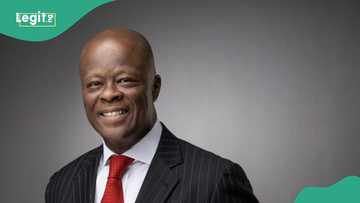Concerns as Nigerian Businesses Shun Traditional Banks to Open Opay, Moniepoint, Others
- Just 11% of businesses in Nigeria's informal sector have accounts with traditional banks, according to recent data
- Furthermore, 39.5% of participants in the informal sector used digital banks, according to the report
- Men were more inclined to start a business; women were more likely to do so since they didn't have enough money from more formal jobs
A recent research has indicated that a mere 11% of firms in Nigeria's informal sector maintain accounts with conventional banks, despite the Central Bank of Nigeria (CBN) continuing to prioritise financial inclusion.

Source: Getty Images
Additionally, the study showed that 39.5% of participants in the informal sector utilised digital banks, 47.5% saved money through contributions and cooperatives, and 2.3% used alternative saving methods.
Moniepoint Inc., in collaboration with the Federal Ministry of Industry, Trade and Investment and the Small and Medium Enterprise Development Agency of Nigeria (SMEDAN), served as the anchor organisation for the "Informal Economy Report 2024."
As per the survey, ThisDay reported that more than 50% of Nigeria's GDP was attributed to enterprises operating in the informal market. It was revealed that the majority of the savings of informal enterprises came from cooperatives and group donations since these methods allowed many of them to feel "closer to home."
PAY ATTENTION: Click “See First” under the “Following” tab to see Legit.ng News on your Facebook News Feed!
The report said
“A close next option is digital banks (39.5%), and least frequently, traditional banks (11%). Their choice could be due to a lower entry barrier entry, and potentially higher returns,”.
It clarified that roughly 1.3% of informal sector enterprises in Nigeria made more than N2.5 million per month.
More on data
Based on the data it stressed that women own 37.1% of businesses in this sector.
“These data show that the informal economy represents a crucial avenue for women’s economic empowerment in Nigeria and across Africa, despite challenges in equity.

Read also
FG clears air on another tax hike after instructing fintechs to deduct N50 from customers’ account
“Our data shows that almost 58 per cent of Nigeria’s informal workforce is below 34 years old. The largest group, making up 43 per cent, is between 25 and 34. The second largest group of young people, 35 to 44-year-olds, represent 28.9 per cent of the sector in Nigeria.
The paper claims that the youthful enthusiasm presents a huge opportunity for entrepreneurship, innovation, and the development of wealth and jobs that will revolutionize society on a socioeconomic level.
It added,
“By transaction value in naira, retail and general trade, alongside food and drinks, accounted for over half of Nigeria’s informal economy at 53.6 per cent.
“Businesses you’d typically find in this category include neighbourhood shops, restaurants, supermarkets, and others that sell ‘daily necessities’.”
The report offered additional insights into the informal sector by stating that the most frequent cause for launching an unofficial firm was unemployment.
It did, however, emphasize that, although men were more likely to establish a business due to unemployment, women were more likely to do so due to a lack of income from more formal employment.
Access, Zenith, others lead banks in Nigeria
Legit.ng reported that the Proshare Bank Strength Index (PBSI) identified Access Corp, Zenith Bank, FBNH, ETI, UBA, and GTCO as Tier 1 Banks in 2024.
Supporting the Afrinvest-inspired idea of FUGAZE, the report is based on a pool of financial metrics based on audited financial statements for the Financial Year (FY) 2023.
Consequently, Fidelity Bank ranked above the tier-two banks, followed by FCMB, Stanbic IBTC, Sterling Holdco, Wema, and Unity Bank.
PAY ATTENTION: Сheck out news that is picked exactly for YOU ➡️ find the “Recommended for you” block on the home page and enjoy!
Source: Legit.ng




